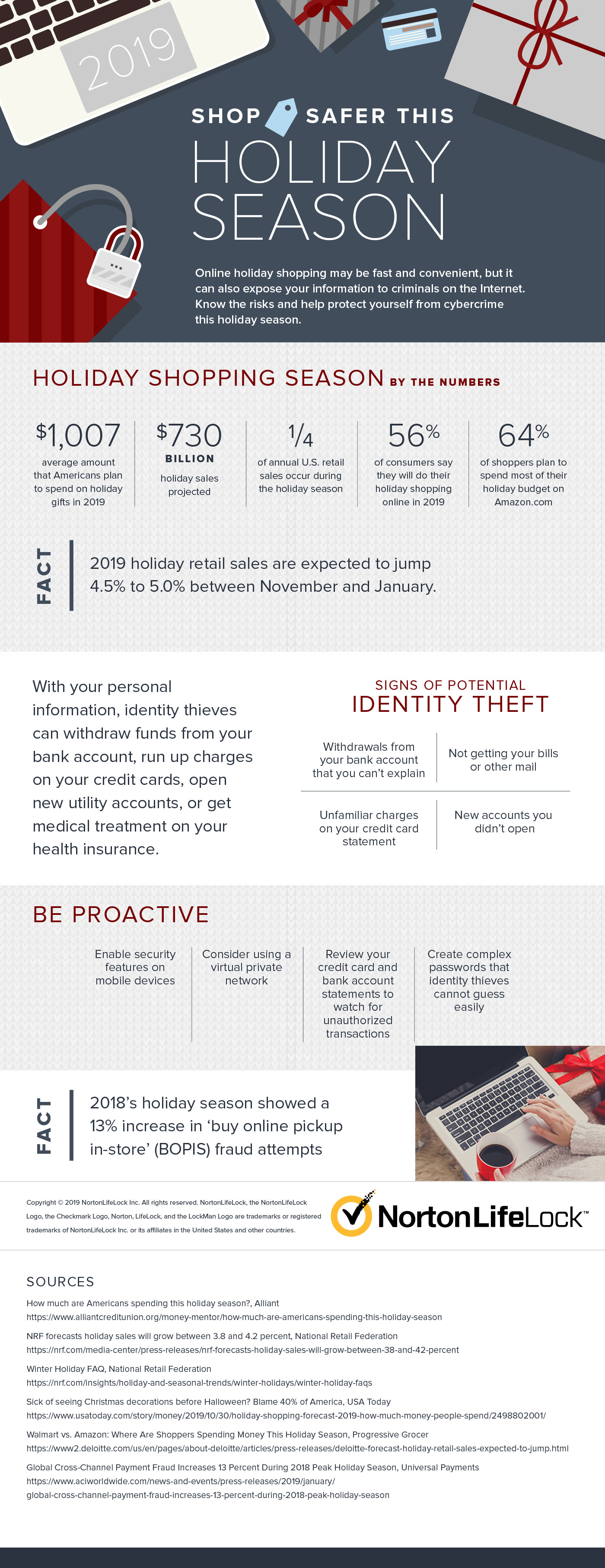This holiday season, The National Retail Federation (NRF) expects Americans to spend nearly $30 billion this year while holiday shopping. With so much of that spending happening online, it’s important to take necessary precautions before inputting your personal financial information into various retail websites. Here are a couple of ways to keep identity theft and data breaches at bay while shopping this season.
Be aware of public network safety
Connecting to an Internet network might seem like an easy and harmless task, but it can, in fact, leave you vulnerable to dangers online. A virtual private network is the best way to create a private network from a public Internet connection. This private network will keep your identity private while online browsing and shopping. Not only does it hide your activity, but it blocks your IP address from being shown in the network to others who might be seeking out private information. Install a VPN on any of your devices that you use while on-the-go or connect to public networks.
Create strong passwords
Big businesses use tools like access certification to manage access to systems, but this isn’t something you need to worry about when online shopping. Most retail websites ask for login credentials before purchasing an item. This password should be generated by you with cybersecurity in mind. Never skip out on creating a strong password for your online shopping profiles where your shipping and credit card information is often stored on your behalf. While creating a password, use a variety of characters and symbols, don’t use names, don’t use birth dates, and make sure they extend to 8-10 characters.
Keep your passwords in a locked app or note that is not accessible to someone who could gain access to your phone. A passcode should always be implemented on your phone, but if someone hacked your device would they be able to access your notes freely? There are a variety of apps and password managers that can protect your passwords with a special pin only you can know and use.
Look into company policy and returns
Before going forward with a big purchase, always browse the company policy and return policy. This is especially important for purchases that are more on the expensive side (electronics, luxury items, clothing, etc.). Check to see if the return policy is feasible and makes sense for the product and delivery timeline. It doesn’t hurt to check out shipping costs, where the product is coming from, etc. Keeping yourself informed from purchase to delivery is the best way to know if something shady or strange is going on. Another smart way to keep everything in check is to save all of your online receipts including tracking numbers, total cost, shipping cost, etc.

Credit over debit
Ditch the debit card and try to make all online purchases with a credit card only. Credit cards offer a plethora of security features to help block any cybercrime that is detected. The federal Fair Credit Billing Act limits the maximum liability of a credit card owner to $50 for unauthorized transactions.
This leaves credit card companies responsible for the remaining balance. Since your actual money is not connected to the card, criminals will have a harder time actually getting away with any sort of fraud, as you can dispute any charges you might see. Of course, this goes back to your preventative actions — like checking credit card statements and staying on top of how much you’re spending and where you’re spending your money.




